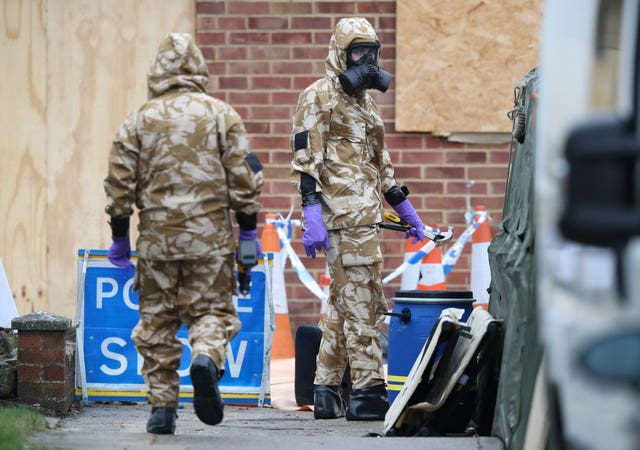
Ali Miraj 12pm - 3pm
9 February 2021, 00:34 | Updated: 20 October 2022, 13:55

The internet provides a turbo boost for terrorist groups, the Defence Secretary said.
Defence Secretary Ben Wallace has warned of a growing threat of international chemical and biological attacks – with some regimes willing to use such weapons on their own people.
He told The Times these attacks were “what happens in a sort of breakdown of world order”, and expressed concern that some states believed it was acceptable to use nerve agents and pathogens against their opponents.
Mr Wallace said the internet provided a “turbo boost” for both extremist groups and nation states looking to research and develop such weapons.
Speaking during an interview at the Defence Science and Technology Laboratory at Porton Down, near Salisbury, he said: “Globally, I think there is a growing threat of chemical or biological (attack).
“It depends on what is at hand for people using the internet.
“It is unfortunately what happens in a sort of breakdown of world order where you see countries like Syria use it on its own people.
“There has been a worry that some states think it is acceptable to use that type of method to carry out or further their aims.”
Mr Wallace referenced the use of chemical nerve agents by Russia in the 2018 poisoning of Russian double agent Sergei Skripal and his daughter Yulia in Salisbury.
Two Russian nationals were accused of travelling to the Wiltshire city to murder Mr Skripal with Novichok.

The Skripals survived the attack, but the incident later claimed the life of Dawn Sturgess after she came into contact with a perfume bottle believed to have been used in the attack and then discarded.
Ms Sturgess’ partner, Charlie Rowley, was left seriously ill but recovered.
The Defence Secretary said the attack in Salisbury demonstrated the need for more police officers to be trained to respond to chemical and biological attacks.
Military personnel deployed to regions at risk of chemical or biological attack have to undergo intense training at Porton Down, including how to repair and maintain military gas masks, The Times reported.